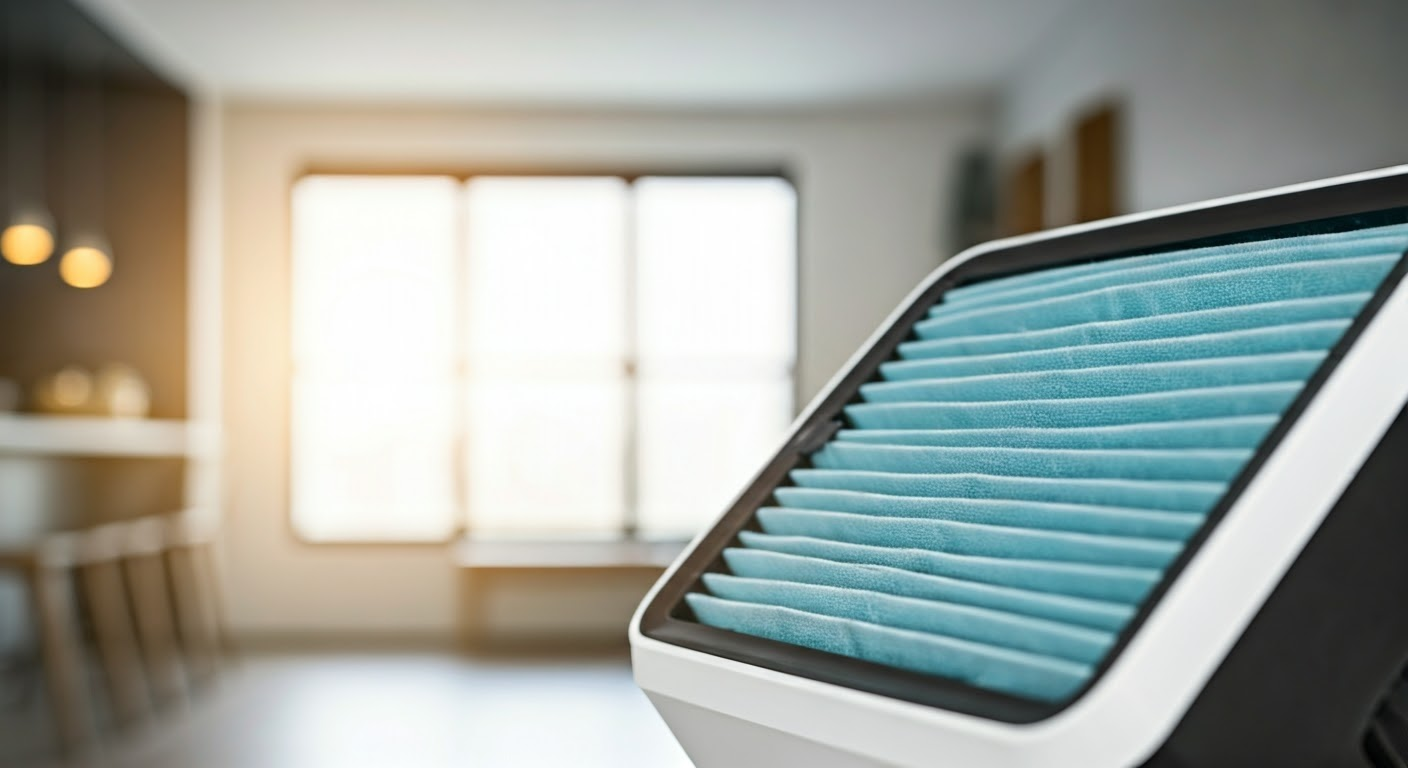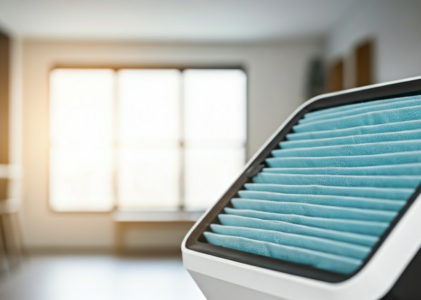Managing Common Summer Allergies: Expert Tips
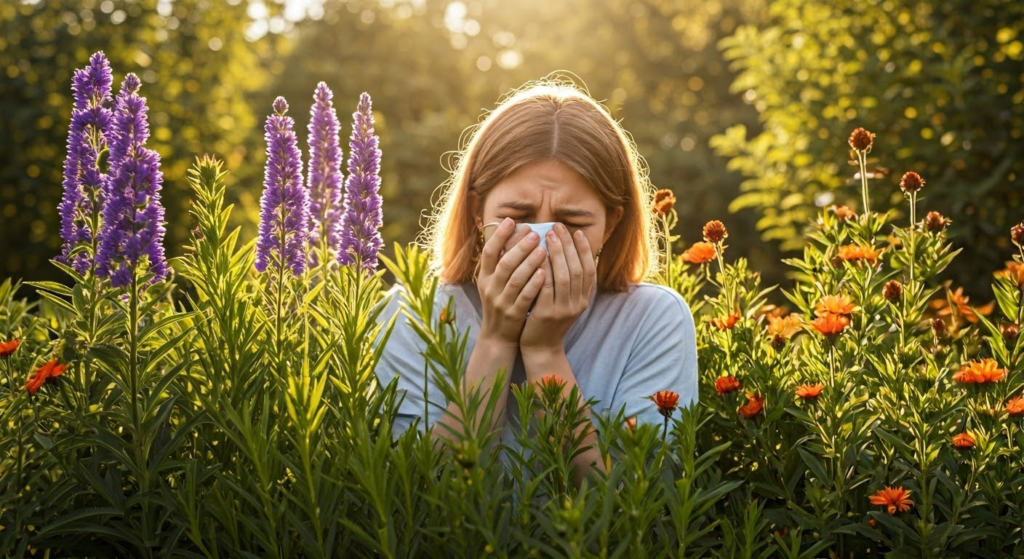
Key Highlights
- Summer allergies plague many, triggered by pollen from grasses, trees, weeds, and mold.
- Symptoms like sneezing, runny nose, itchy eyes, and congestion can put a damper on outdoor enjoyment.
- Minimize exposure by monitoring pollen counts, using air conditioning, and showering after outdoor activities.
- Over-the-counter antihistamines and nasal corticosteroids can provide relief from allergy symptoms.
- Consult a healthcare professional for severe or persistent allergies to explore additional treatment options.
Introduction
As the weather gets warmer and we enjoy being outside, we must keep summer allergies in mind. Many people think summer allergies are just a cold that won’t go away. But these allergies come from certain allergens that are common in summer. These allergens can lead to different allergy symptoms, making it hard to fully enjoy the season. This blog post will offer expert tips to help you understand, prevent, and manage common summer allergies.
Identifying Common Allergies in Summer and remedies
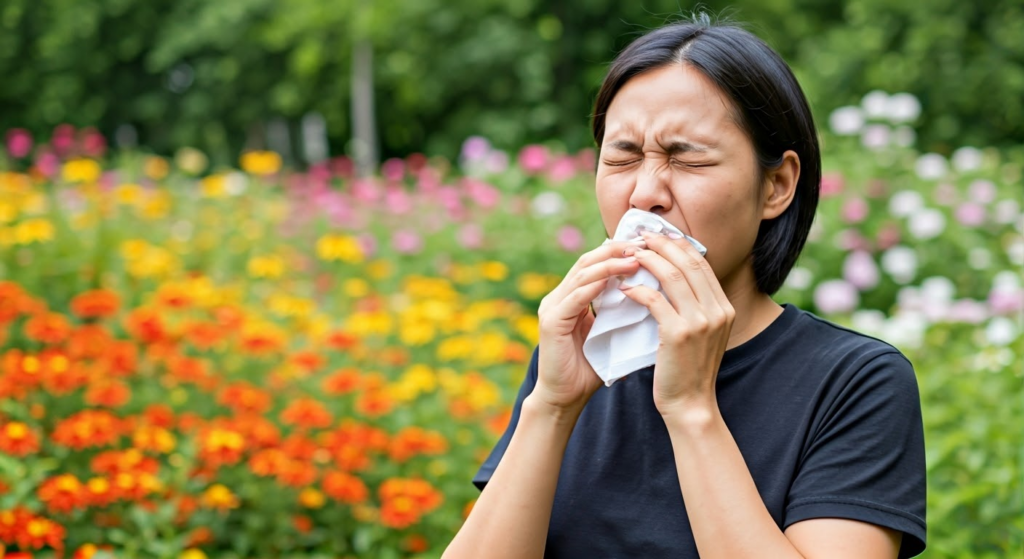
During summer, going outside often exposes us to many allergens that are less common at other times. Summer is for fun in the sun. However, some allergens are in the air, causing problems for those who are sensitive.
To handle summer allergies better, it helps to know where they come from. Grass pollen is the biggest issue; it is released by different types of grass. Tree pollen mostly appears in spring but can still be around in summer in some places. In late summer, weed pollen, especially from ragweed, comes into play, adding more trouble for allergy sufferers.
Typical Symptoms of Summer Allergies
Summer allergies show up in different ways. They often look like cold symptoms but are not caused by a virus. They happen because the body’s immune system reacts to specific allergens.
One common symptom of allergies is watery eyes, which can also feel red and itchy. Another sign is nasal congestion. This is when you feel blocked in the nose. It can make it hard to breathe through your nose and you might often need to clear it.
A runny nose can often happen with nasal congestion. This means a clear and watery discharge from the nose. Sneezing is another effect. It is the body’s way of getting rid of allergens from the nose and mouth.
Key Triggers and Environmental Factors
Summer allergies are primarily driven by the increased presence of pollen in the air. Warm weather encourages the growth and pollination of various plants, releasing pollen grains into the atmosphere. The types of trees, grasses, and weeds prevalent in a particular region influence the specific pollen types present during the summer months.
Pollen counts, which measure the concentration of pollen grains in the air, provide valuable information for allergy sufferers. Monitoring pollen counts can help individuals plan outdoor activities accordingly, minimizing exposure during peak pollen times.
| Time of Year | Common Allergens |
|---|---|
| Late Spring/Early Summer | Tree pollen (oak, birch, maple) |
| Summer | Grass pollen (timothy, ryegrass, Bermuda) |
| Late Summer/Early Fall | Weed pollen (ragweed) |
Preventative Measures for Summer Allergies
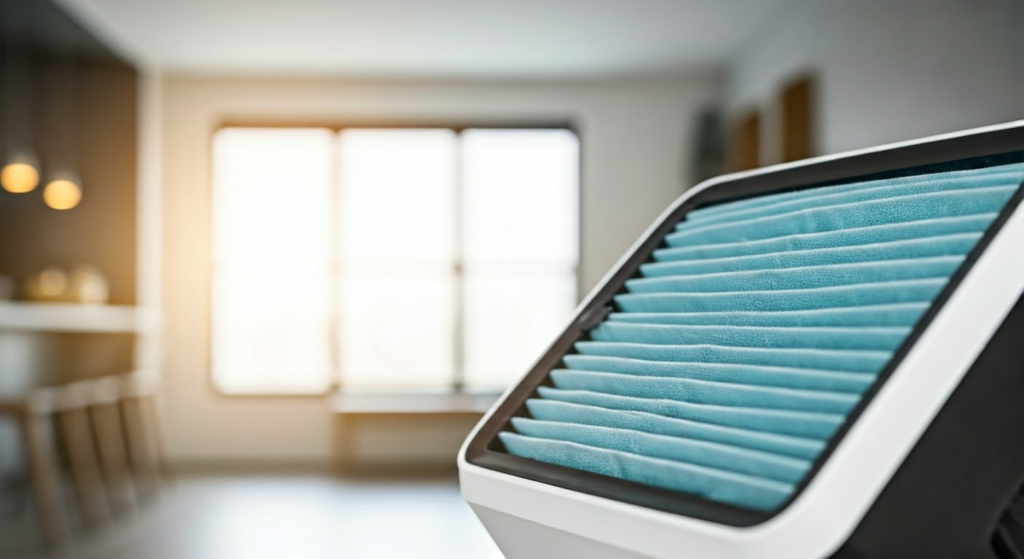
During the summer months, it’s hard to avoid allergens like pollen completely. However, there are several ways to reduce their impact and lessen allergy symptoms.
You can do this by limiting your contact with allergens, managing your home environment, and taking steps to lessen their effects on your body.
Best Practices to Reduce Exposure
When you spend time outdoors, pay attention to pollen levels. Check your local weather for pollen counts. Try to plan outdoor activities when pollen levels are lower, like early morning or late evening. If you need to be outside when pollen is high, wear a hat and sunglasses. This will help keep pollen away from your eyes and hair.
Inside your home, keep windows and doors closed on days with high pollen. This stops pollen from getting inside. Instead of opening windows, use an air conditioner with a HEPA filter. It will cool down the air and keep it clean.
Here are some extra tips:
- Shower and change your clothes after being outside. This will wash away any pollen on your skin or clothes.
- Wash your bedding often in hot water. This helps remove pollen and other allergens.
Effective Use of Air Filters and Air Quality Improvements
Improving the air inside your home is important for handling summer allergies. We usually stay indoors more in the warmer months. Air filters are key because they catch indoor allergens. This stops them from spreading around our living spaces.
HEPA filters, or high-efficiency particulate air filters, are very good at collecting tiny allergens. These include pollen, dust mites, and pet dander. Getting a good HEPA air purifier for your home can help make the air cleaner and better to breathe, especially during allergy season.
It’s also crucial to clean and care for air filters regularly to keep them working well. Besides that, reducing clutter and dust in your home can help cut down on indoor allergens even more.
Treatment Options for Immediate Relief
While it is important to take steps to prevent summer allergies, there are also treatment options that can give quick relief from annoying symptoms. You can find over-the-counter medications at most pharmacies. These can help with mild to moderate allergy symptoms.
If your allergies are more severe or last a long time, it is important to see a healthcare professional. They can suggest prescription medications or allergy shots. This way you can get a treatment plan that fits your needs.
Over-the-Counter Medications and Their Use
Oral antihistamines come as pills, liquids, or chewable tablets. They block histamine, a chemical the body releases during an allergic reaction. These medicines help people feel better by reducing sneezing, a runny nose, and itchy eyes. Some popular over-the-counter choices include cetirizine (Zyrtec), loratadine (Claritin), and fexofenadine (Allegra).
Nasal corticosteroids are available as nasal sprays. They work by lowering inflammation in the nasal passages. These medications help relieve nasal congestion, a runny nose, and sneezing. Common nasal corticosteroids include fluticasone (Flonase Allergy Relief), mometasone (Nasonex), and triamcinolone (Nasacort Allergy 24HR).
For itchy or watery eyes, lubricating eye drops can provide relief. A healthcare provider can help you choose the right over-the-counter medications. They also ensure these medicines do not affect any existing health issues or medications.
When to Consider Prescription Medications
If you do not get enough relief from over-the-counter options, you may need to see a healthcare provider. If your allergy symptoms are serious, they might recommend prescription medications. Stronger antihistamines or nasal corticosteroids can help control the symptoms better.
In some situations, a healthcare provider may suggest allergy shots, known as immunotherapy, for long-term relief from allergies. Allergy shots give you injections that contain small amounts of the specific allergens causing your symptoms.
This treatment helps your immune system slowly get used to those allergens. Over time, it may lower the severity of your allergic reaction and provide lasting relief. Your healthcare provider can guide you on whether allergy shots are right for you and help create a treatment plan just for your needs.
Conclusion
In conclusion, handling common summer allergies means knowing what causes them, what the symptoms are, and how to prevent them. You can find relief by avoiding allergens, using air filters, and thinking about the right medications. It is important to ask for professional help when needed for proper treatment. Stay informed and take steps to enjoy a healthier summer with less trouble from allergies. If you have more questions or need specialized help, talk to our experts for personalized advice to fight summer allergies effectively.
Frequently Asked Questions
What are the top three most common summer allergens in the US?
Insect bites and mold spores can cause allergies. However, the main reasons for summer pollen allergies in the US are grass pollen, tree pollens (especially in early summer), and weed pollen, like ragweed.
https://order.store.mayoclinic.com/flex/mmv/incon01
https://www.ncbi.nlm.nih.gov/pmc/articles/PMC5796967
https://acaai.org/allergies/allergy-treatment/air-filters
https://www.ondemand.labcorp.com/lab-tests/indoor-outdoor-allergy-package
